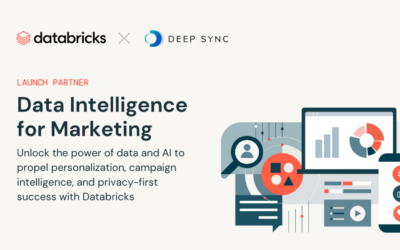From the slow demise of cookies to iOS 14.5 updates, targeting on social media has gotten more complicated. And, these complications have led to reduced campaign effectiveness. To address this decline, social media advertisers need to be looking at new ways to identify and target their audiences precisely.
For an advertiser, the critical factor for campaign success is targeting. While much social media targeting relies upon on-platform data, like interests, likes, or location, there are other options.
Powerful and relevant information such as buyer behavior, mobile app usage, product preferences, or purchase intent is also an option. To activate this, social media advertisers need to be investing in third-party data.
From car ownership to holiday types, financial product ownership to job function, brand preference to entertainment choices, and much more, leverage this data to make your targeting more accurate and campaigns more effective.
What to look for when buying third-party data
If buying third-party data to apply to your marketing campaigns is new to you, what should you focus on? Here are some things to consider:
1. Data quality
Accurate targeting requires quality data, and this comes down to two factors:
- Is the data compliant? Has the data been collected in accordance with the necessary privacy regulations? Is it safe for you to activate it for your marketing activity?
- Where did the data come from? It’s not just about the data itself! With thousands of audience data sets available, do your due diligence. Who is the data sourced from? Is it from a reputable and trusted company with established data practices that you’ve heard of, like Oracle, LiveRamp, or Deep Sync? If so, you can be confident in the quality of the audience data and that it complies with all regulations.
2. The scale of the data
What is the potential reach of the particular third-party audience data you are considering, and how does this compare to other options? The data must provide the scale you need to support your campaign goals.
The more defined your target audience, the smaller your reach will be. Scale also applies to your audience categories. For example, if you’re an agency, can you access data from a wealth of industries such as retail, consumer packaged goods, automotive, financial services, business, and more, or is it limited to specific sectors?
3. Ease of finding and activating
Your time and effort should go into defining your target audience. But accessing, buying, and activating the data you need should be a streamlined process.
For example, the Deep Sync One marketplace allows you to quickly search across rich consumer and business audiences, choose your audience segments, and activate them in your social media destination of choice.
Choose solutions that remove the complexity of finding quality audiences and eliminate any contractual, licensing, or operational headaches around buying so you can use the data immediately.
4. Only pay for what you need
Treat your third-party audience data as you would a new channel: You wouldn’t go all out at the start but instead would test it to see if it works. Start small and measure the performance.
If the data delivers an improved return on investment, then commit more budget. You shouldn’t have to commit to minimum order values or be tied into a data contract. If the data works, great! But if it doesn’t, there should be no obligation to continue to spend.
Precise Social Media Targeting Doesn't Need a Huge Budget
Third-party data for social media targeting is not solely the prerogative of large-budget advertisers. It’s never been easier for smaller agencies, brands, and small businesses to take full advantage. And, accessing this information can help remove targeting blind spots and help you compete with the big players!
Third-party data lets you run more efficient and cost-effective campaigns, target those audiences most likely to meet your campaign goals, and improve your performance. Failing to use this data means social media advertisers are stifling their campaign potential.
To find out how Deep Sync can address your targeting challenges, visit our site or get in touch with us at support@deepsync.com.












0 Comments